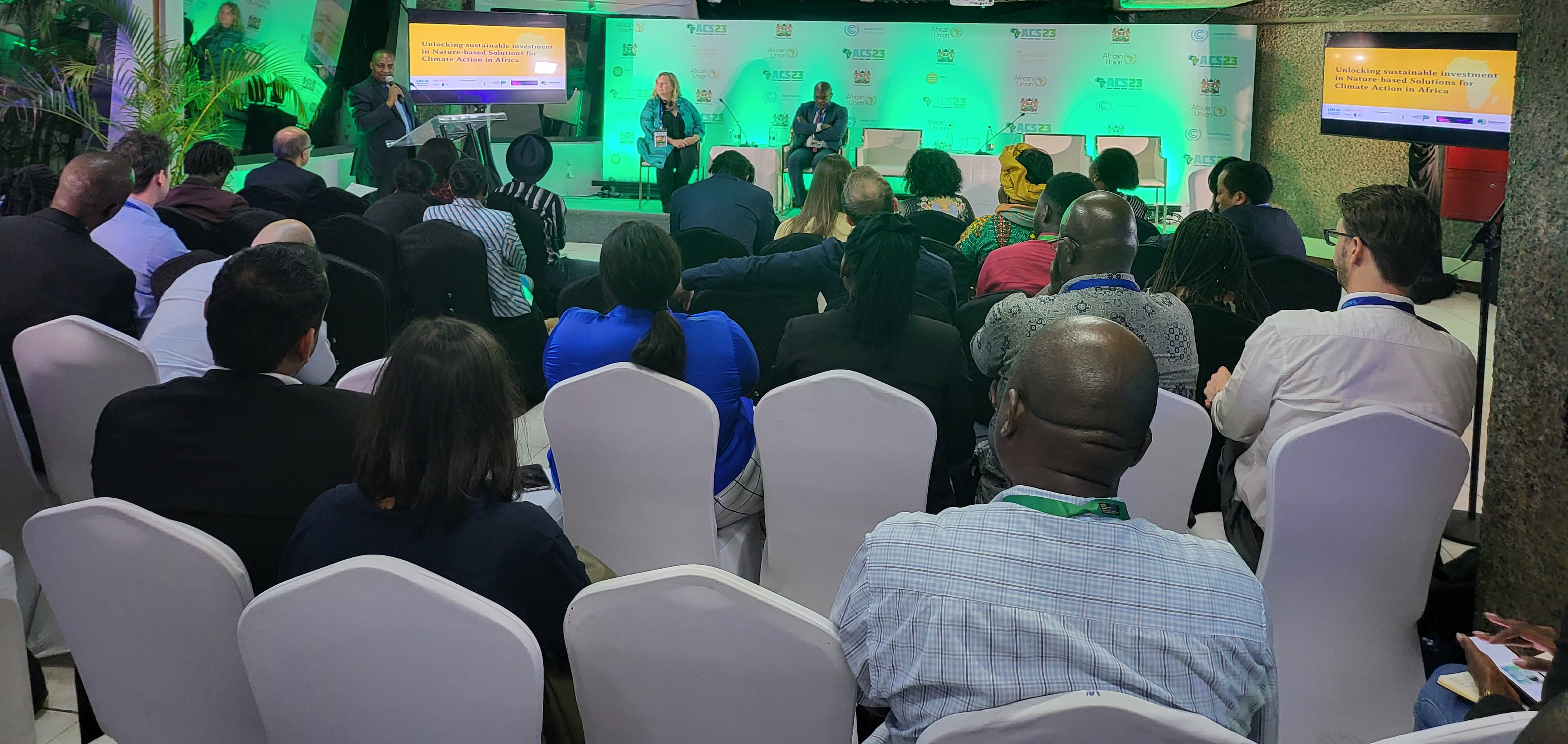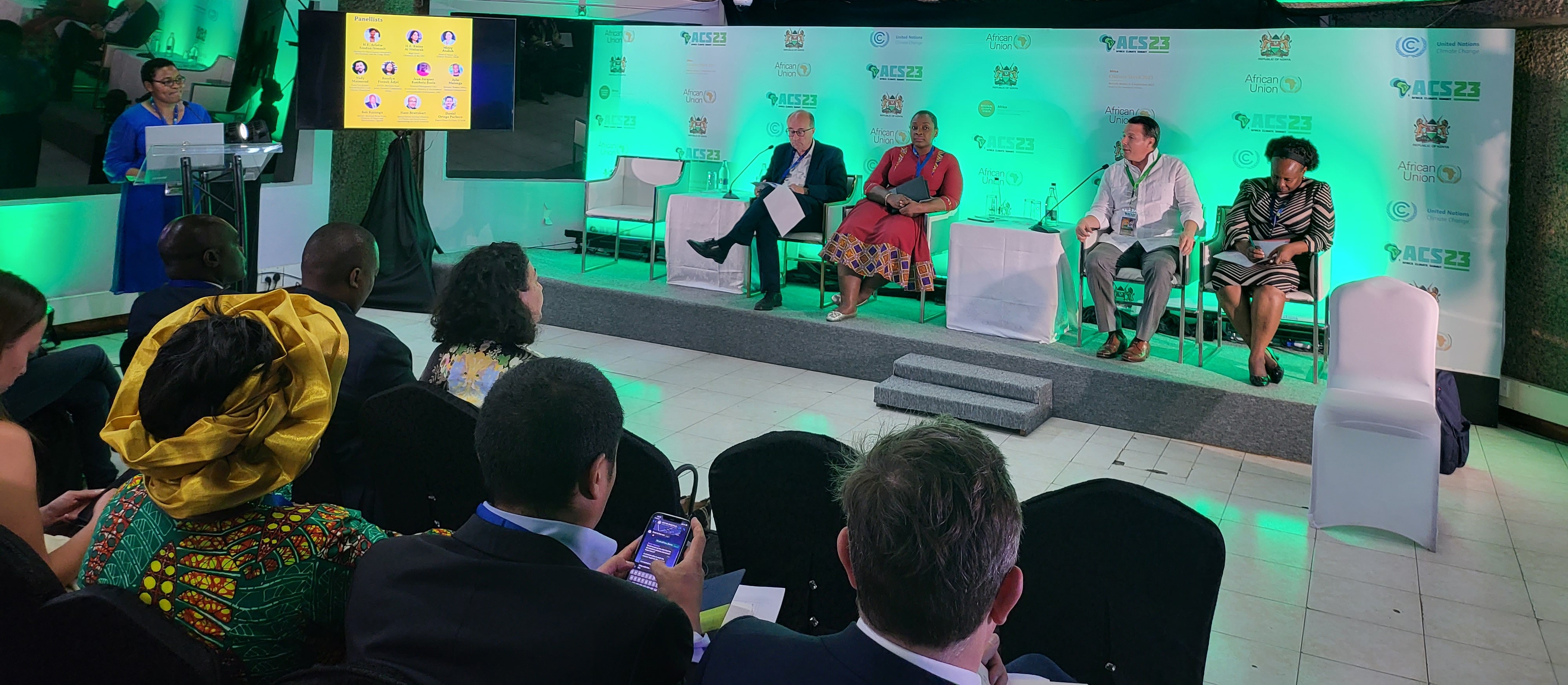Africa is home to approximately 670 million hectares of forests and 40 million hectares of peatlands, ecosystems that are being consistently degraded. Currently, degraded peatlands release about 130 million tonnes of CO2 each year. Without safeguarding these tremendous carbon reservoirs, which can potentially reduce emissions by up to 4 billion tons of CO2 per year, the ambitions of the Paris Agreement to stay within 1.5 °C will not be met.
The 2023 Africa Climate Week provided an opportunity for African countries and stakeholders to come together to promote greater climate action and to help Africa better access international markets and avoid emission-intensive development. The UN-REDD Programme, Global Peatlands Initiative, Africa Forest Forum among other partners, were part of this discourse that took place in Nairobi. The focus was on the importance of forests and peatlands in fighting climate change, including potential steps towards increasing integrity and forest carbon prices as a strategy to ensuring the sustainability of these two key ecosystems.
Key highlights of the discussions include:
- Reducing deforestation and forest degradation, including peatlands and mangroves, represents one of the most effective, mature, and robust mitigation options with the potential to slash emissions by about 4 Gt a year.
- Climate change and nature loss are interconnected and perpetuate a feedback loop that leads to further negative impacts on both fronts. It is crucial to address this interconnection and integrate Nature-based Solutions into climate change mitigation and adaptation strategies.
- Integrity in voluntary carbon markets is key to building trust among stakeholders, attracting investment, and promoting a sustainable carbon market that benefits both people and the planet. This can be attained through easily accessible and detailed information about project methodologies, impacts, financial flows, and contributions to local communities and biodiversity.
- Political momentum for forests is urgently needed to promote scientific knowledge and opportunities for important carbon investments.
- The current price of carbon is largely driven and controlled by the demand side. It is also necessary to consider factors from the supply side, as well as considering the true value of nature’s contribution to climate action when determining the carbon price.
- Upfront financing in voluntary carbon markets should support countries in establishing the necessary governance frameworks, national institutions, and technical expertise.
- Carbon pricing should be designed to avoid worsening inequalities between actors. It should consider both demand and supply factors to promote a balanced market and drive investment in carbon offset projects for emission reduction.
- Local communities must be actively involved as they play a significant role in preventing deforestation. However, getting their buy-in requires that they receive fair and equitable benefits from forestry resources.
- Collaborative private-public efforts and aligned government spending are essential for the conservation of forests and peatlands.
- Forest and peatland ecosystems are often interlinked, and are vital Nature-based Solutions to mitigate climate change.
- Reducing deforestation and restoring global forests requires an estimated USD 460 billion annually. Yet, climate finance for forests remains insufficient. Greater investment, especially in result-based finance, is crucial. A more coherent use of national public finance may also help to close the finance gap, by bridging and enhancing synergies between agriculture and forestry investments.

Mirey Attallah, Head of Nature for Climate Branch, noted that forest loss and damage needs to be reflected in the pricing of emissions reductions because of the role that forests play in regulating climate, hydrological cycles, preventing drought and addressing floods.
Bob Kazungu, Uganda National REDD+ Focal Point, added that forests are important in delivering the aspirations and actions of climate goals. DRC Peatlands Coordinator, Jean-Jacques Bambuta, emphasized the need to value peatlands conservation as a key ecosystem and important carbon reservoir.
The conservation and restoration of forests and peatlands remains a crucial task for African governments and stakeholders to ensure the goals of the Paris Agreement are achieved. Climate and nature actors must continue to come together to build momentum and protect these valuable resources.
Written by Michael Muratha with inputs from UN-REDD Africa Team , GPI and FAO



